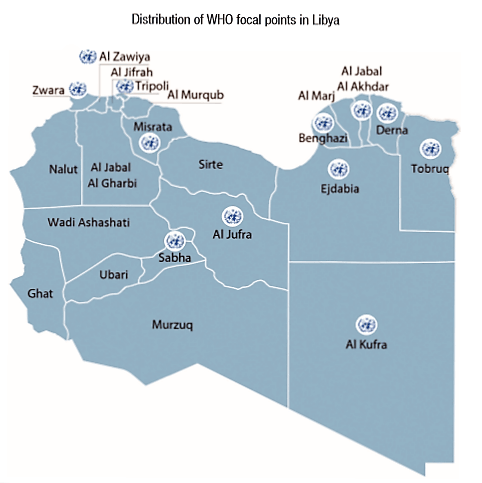WHO presence in Libya
The WHO Representative’s Office in Libya supports the Government and health authorities at central and local level in strengthening health services, addressing public health issues and supporting and promoting emergency response.
WHO experts provide appropriate technical support upon the request or acceptance of national authorities.
Libya is designated as a grade 2 emergency country. WHO is coordinating and working closely with Libyan counterparts to ensure alignment with national health priorities and response efforts planned for Libya. Health system reform, institutional capacity-building, and health workforce development remain priorities for a number of years in Libya. Other priorities include mental health and psychosocial support, post-conflict rehabilitation and trauma care, prevention and control of communicable and management of non-communicable diseases.
WHO coordinates efforts with essential stakeholders and partners to assess the health system and to initiate the process of health system strengthening in close consultation with the Ministry of Health and the European Union.









